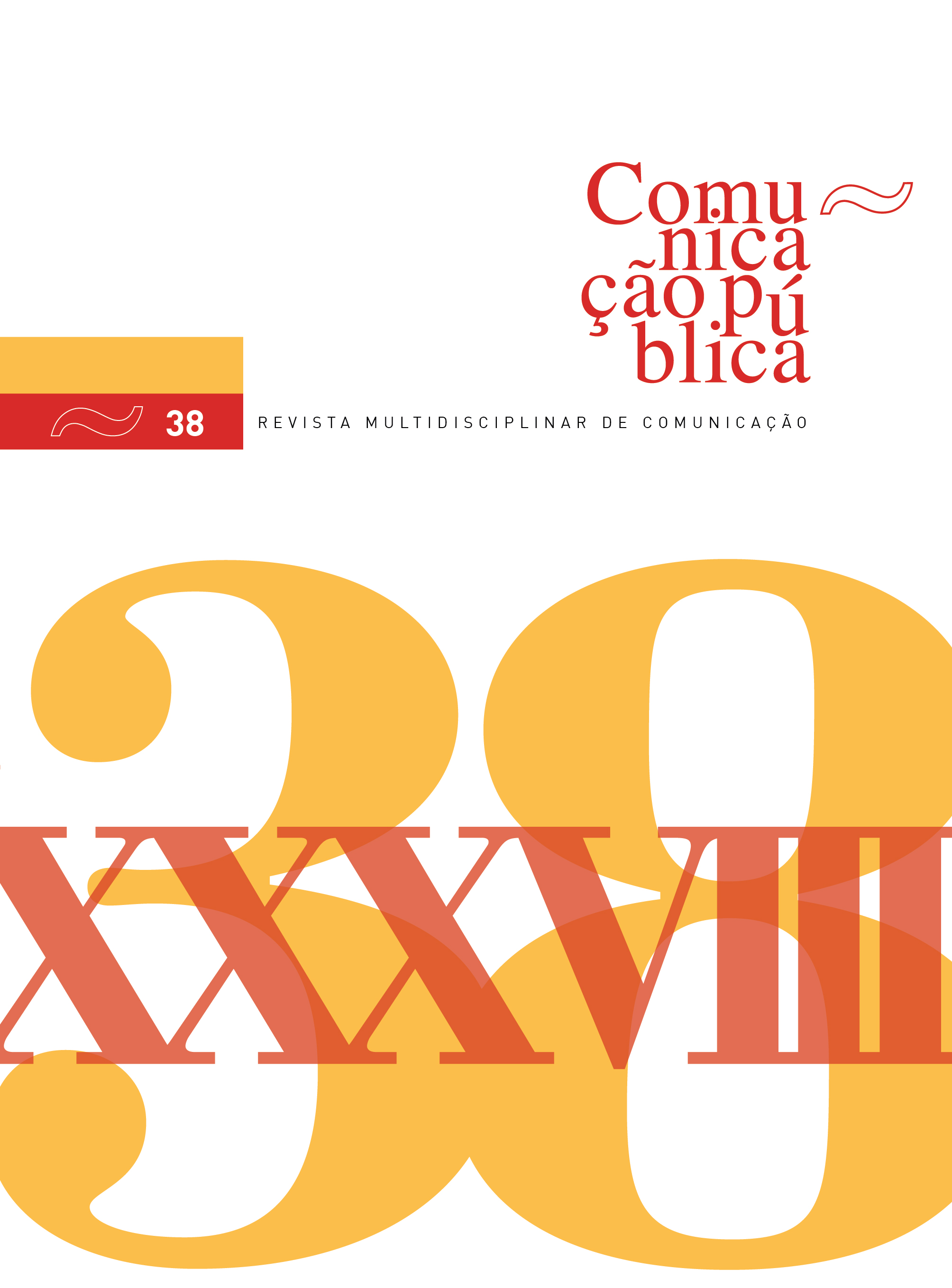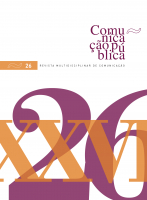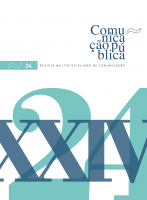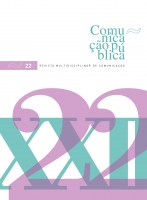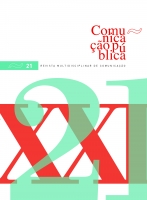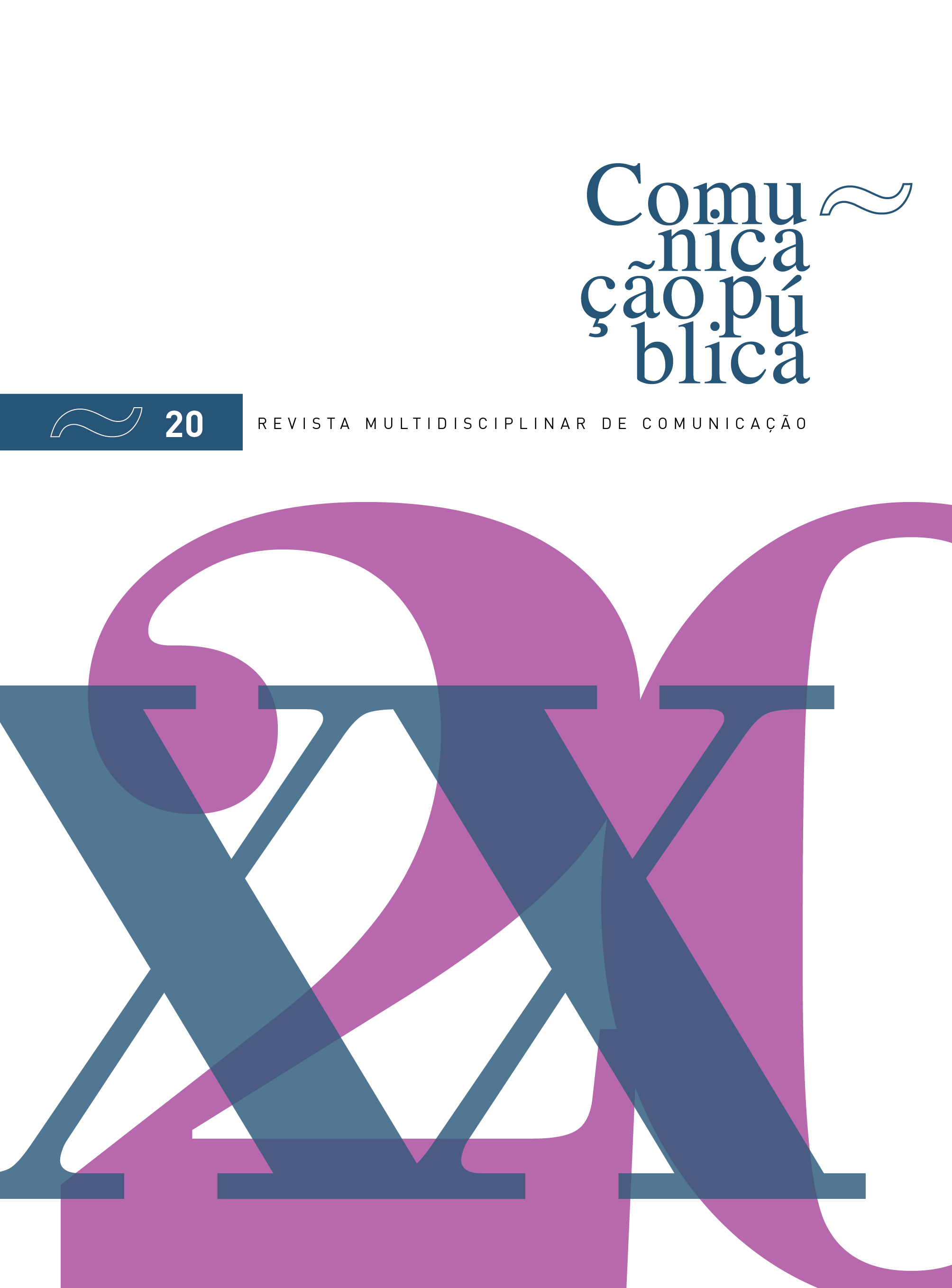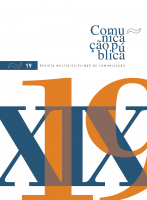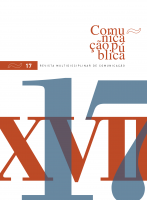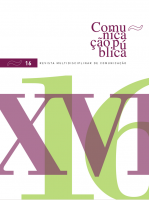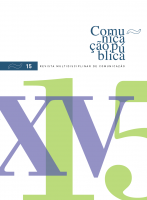Edições Anteriores
-
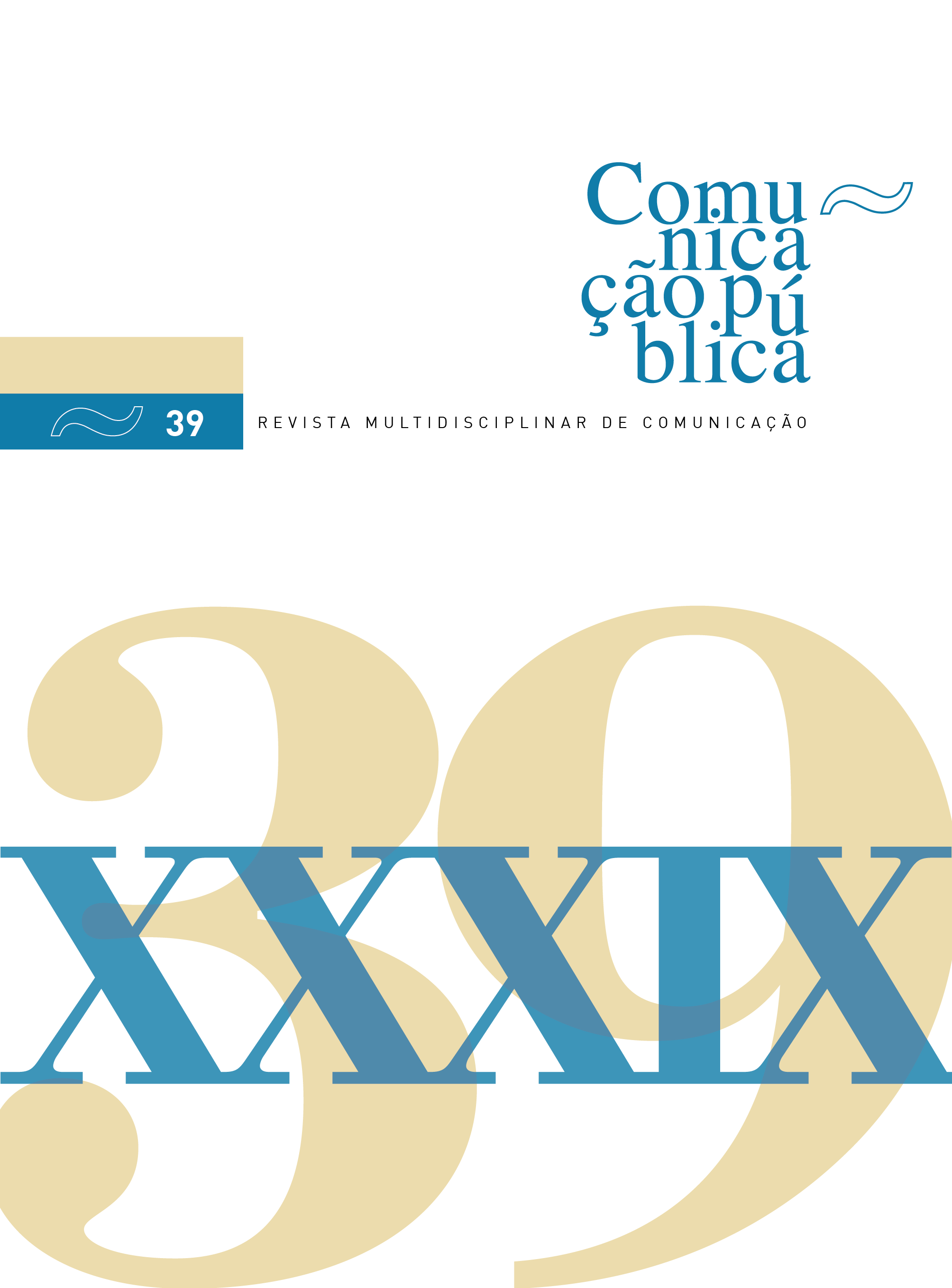
Número com Dossiê Temático
Vol. 20 N.º 39 (2025)DOSSIÊ TEMÁTICO (Tomo I):
Serviço público de média e inovação
Public service media and innovation
EDITORES:
Elton Bruno Pinheiro, Universidade do Minho, Centro de Estudos de Comunicação e Sociedade
Luís António Santos, Universidade do Minho, Centro de Estudos de Comunicação e Sociedade
Refletir analiticamente sobre os Serviços Públicos de Média a partir da perspetiva do campo multidimensional da inovação é o principal objetivo deste Dossiê. A inovação de que falamos é aquela que deve ser percebida como um “fenómeno social” por englobar não apenas questões “tecnológicas”, mas também “simbólicas” (Rossetti, 2013). Portanto, interessa-nos compreender como os Serviços Públicos de Média, em diversos territórios, estão a inovar, podem/devem inovar ou enfrentam desafios para inovar (na programação, gestão, participação social, financiamento, regulação), sobretudo num contexto político-económico e sociocultural em que fenómenos como a desinformação, os discursos de ódio e os diversos populismos são cada vez mais presentes, especialmente no ambiente mediático sociodigital, e colocam sob tensão a sociedade, a cidadania, a democracia e a vida.
-
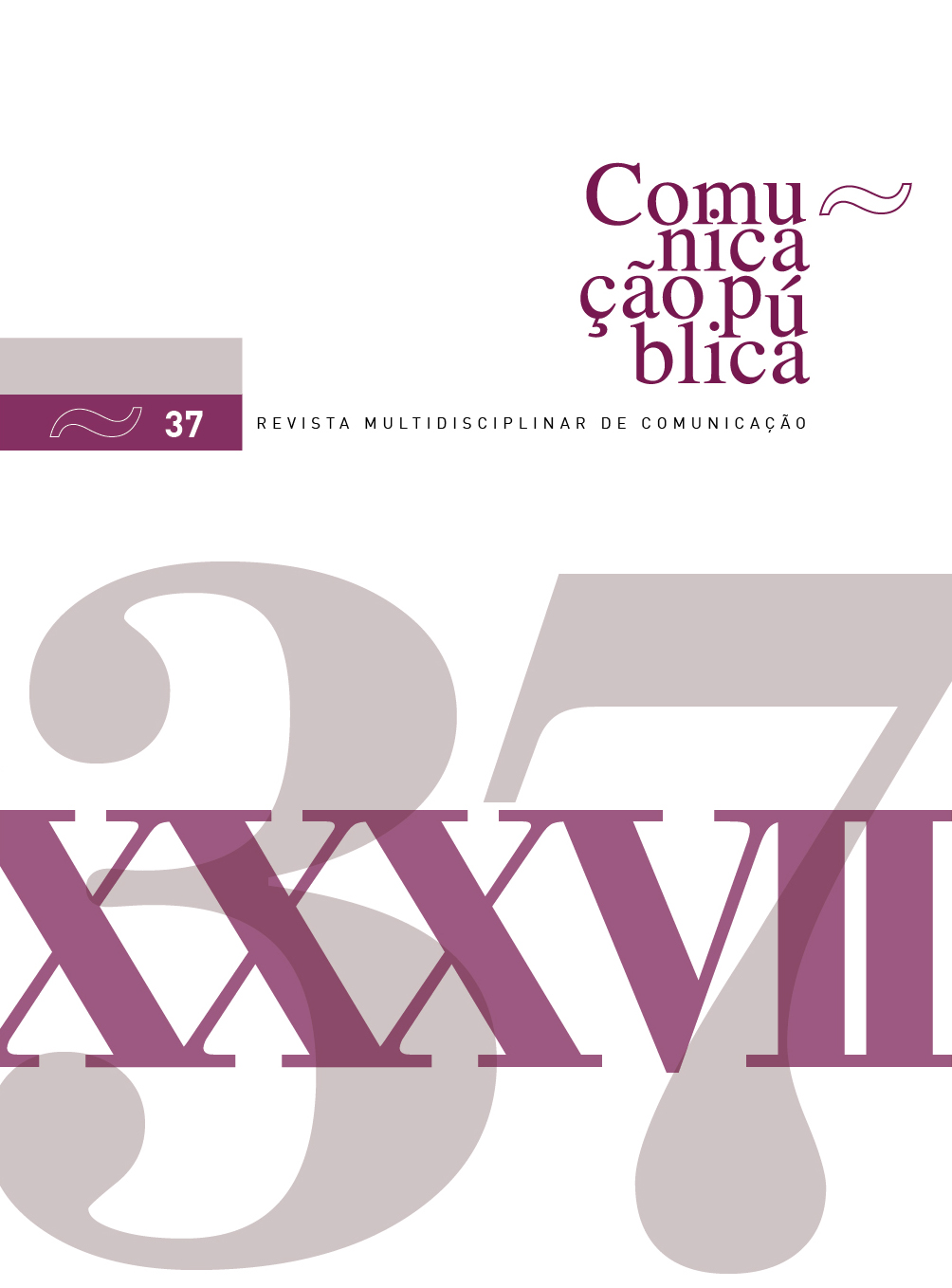
Número com dossiê temático
Vol. 19 N.º 37 (2024)DOSSIÊ TEMÁTICO
Cultura digital: mediatização, vigilância e espaço público
Digital culture: mediatization, surveillance and public space
EDITORES
Silvia Valencich Frota, Faculdade de Letras da Universidade de Lisboa, Centro de Estudos Comparatistas
Nuno Medeiros, Faculdade de Letras da Universidade de Lisboa, Centro de Estudos Comparatistas
As transformações da cultura, promovidas quer pelo digital quer pelo desenvolvimento dos media e dos sistemas de informação e comunicação, representam um dos grandes desafios das sociedades contemporâneas. Entender tais mudanças e os seus impactos, muitas vezes profundos, torna-se parte do quotidiano, não só de profissionais da comunicação, mas de todas/os nós, cidadãs e cidadãos. Que desafios, riscos e oportunidades afloram? Que novos espaços públicos de interação e socialização estão a ser promovidos? A partir de uma abordagem transdisciplinar, o objetivo deste dossiê é promover a reflexão sobre o impacto dessas novas tecnologias numa sociedade marcada, por um lado, pela abundância de informação e dados e, por outro, por uma profunda e generalizada crise de confiança, com todo o potencial de rutura e instabilidade que lhe pode ser associado.
-
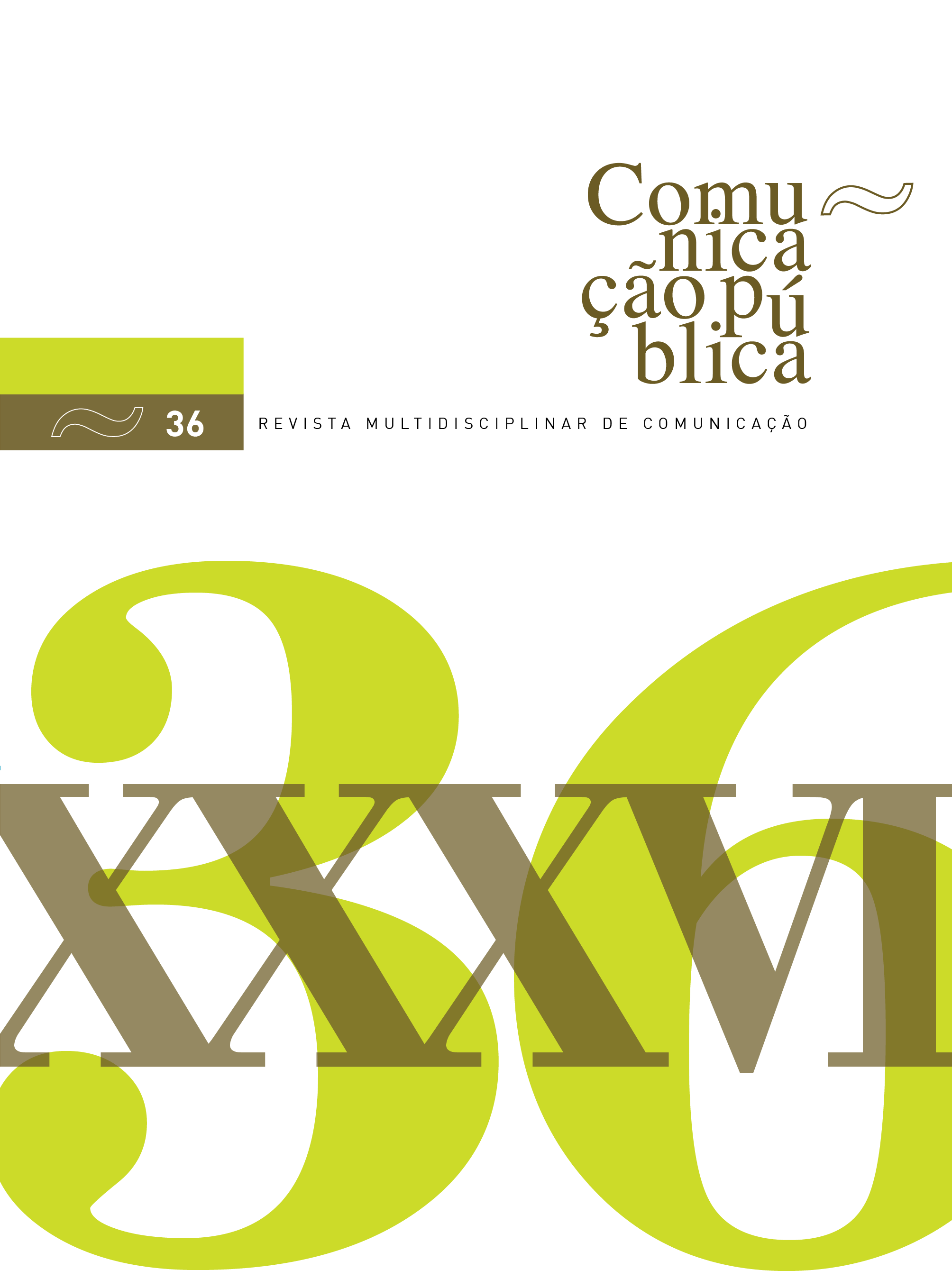
Número com dossiê temático
Vol. 19 N.º 36 (2024)DOSSIÊ TEMÁTICO
Techvolution: explorando o nexo das novas tecnologias, dos consumidores e do marketing
Techvolution: exploring the nexus of new technologies, consumers, and marketing
EDITORES
Ana Teresa Machado, Escola Superior de Comunicação Social, Instituto Politécnico de Lisboa (ESCS - IPL), LIACOM - ESCS
Zélia Raposo Santos, Escola Superior de Comunicação Social, Instituto Politécnico de Lisboa (ESCS - IPL), LIACOM - ESCS
Este dossiê temático tem como objetivo principal estimular a discussão académica sobre a relação simbiótica entre tecnologia, consumidores e marketing. Para isso, reúne estudos que investigam como a revolução digital está a moldar o comportamento do consumidor e as estratégias de marketing. Com base em diferentes objetivos de estudo, abordagens e perspetivas, os artigos apresentados proporcionam uma análise abrangente do impacto tecnológico na dinâmica no comportamento do consumidor e no marketing, destacando-se três áreas temáticas: a importância dos influenciadores digitais e das redes sociais, o consumo de conteúdo digital e as inovações tecnológicas no marketing.
-
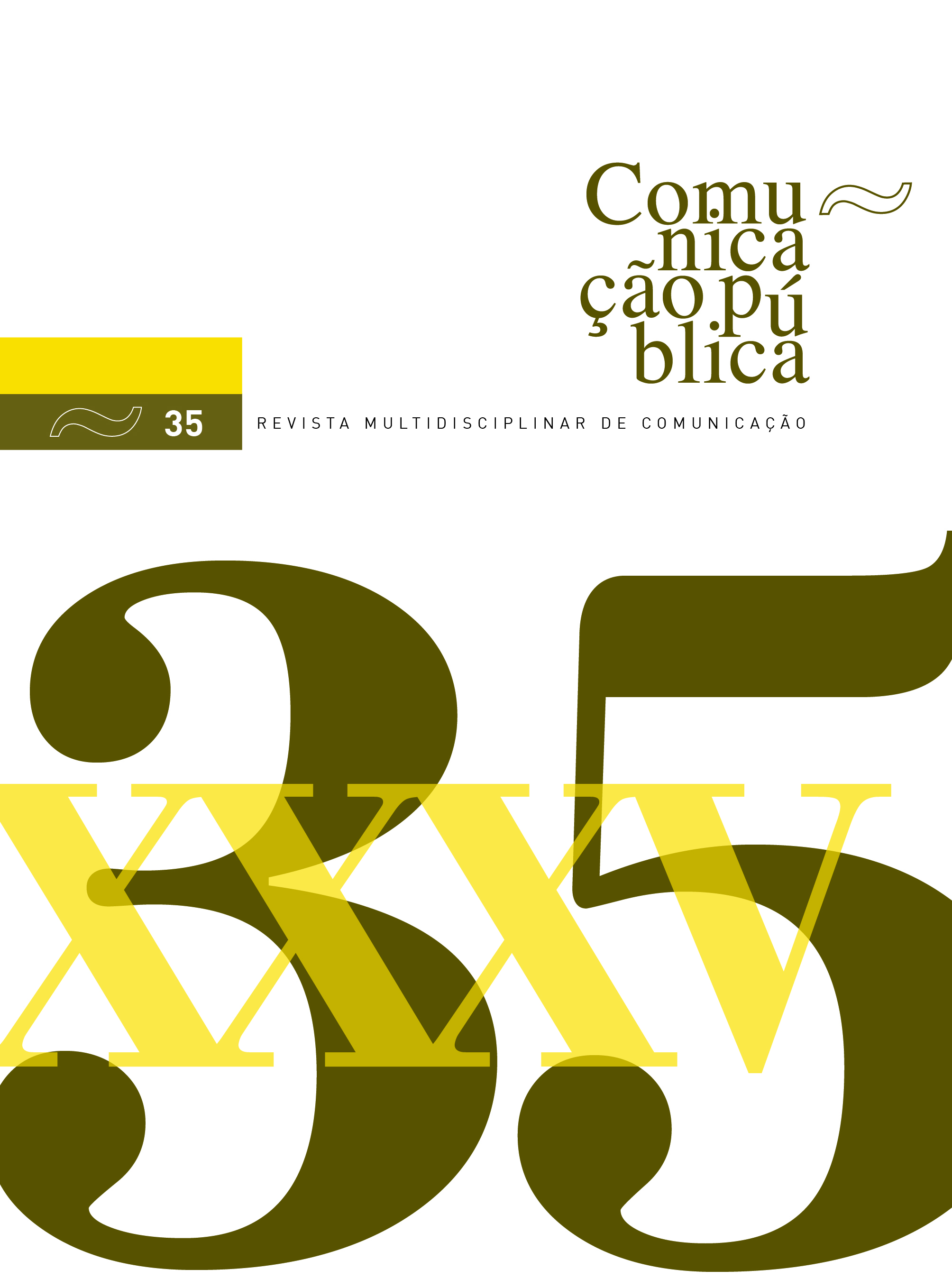
Número com dossiê temático
Vol. 18 N.º 35 (2023)DOSSIÊ TEMÁTICO
O jornalismo na sociedade contemporânea: 20 anos de O Quarto Equívoco
Journalism in contemporary society: 20 years of O Quarto Equívoco
EDITORES
Fátima Lopes Cardoso, Escola Superior de Comunicação Social, Instituto Politécnico de Lisboa (ESCS - IPL); ICNOVA-Instituto de Comunicação da Nova
Pedro Marques Gomes, Escola Superior de Comunicação Social, Instituto Politécnico de Lisboa (ESCS - IPL)
No ano em que o livro de referência de Mário Mesquita (1950-2022), O quarto equívoco – O poder dos media na sociedade contemporânea (MinervaCoimbra, 2003), completa duas décadas de existência, este dossiê da revista Comunicação Pública reúne estudos que incidem sobre a transversalidade dos temas abordados na obra. Tendo como objetivos principais incentivar a continuidade da problematização e discussão pública de questões para as quais Mário Mesquita deu um contributo fundamental, este número especial revela como o seu pensamento e trabalho de investigador se mantêm atuais e continuam a abrir inúmeras hipóteses de estudo sobre os media e o jornalismo.
-
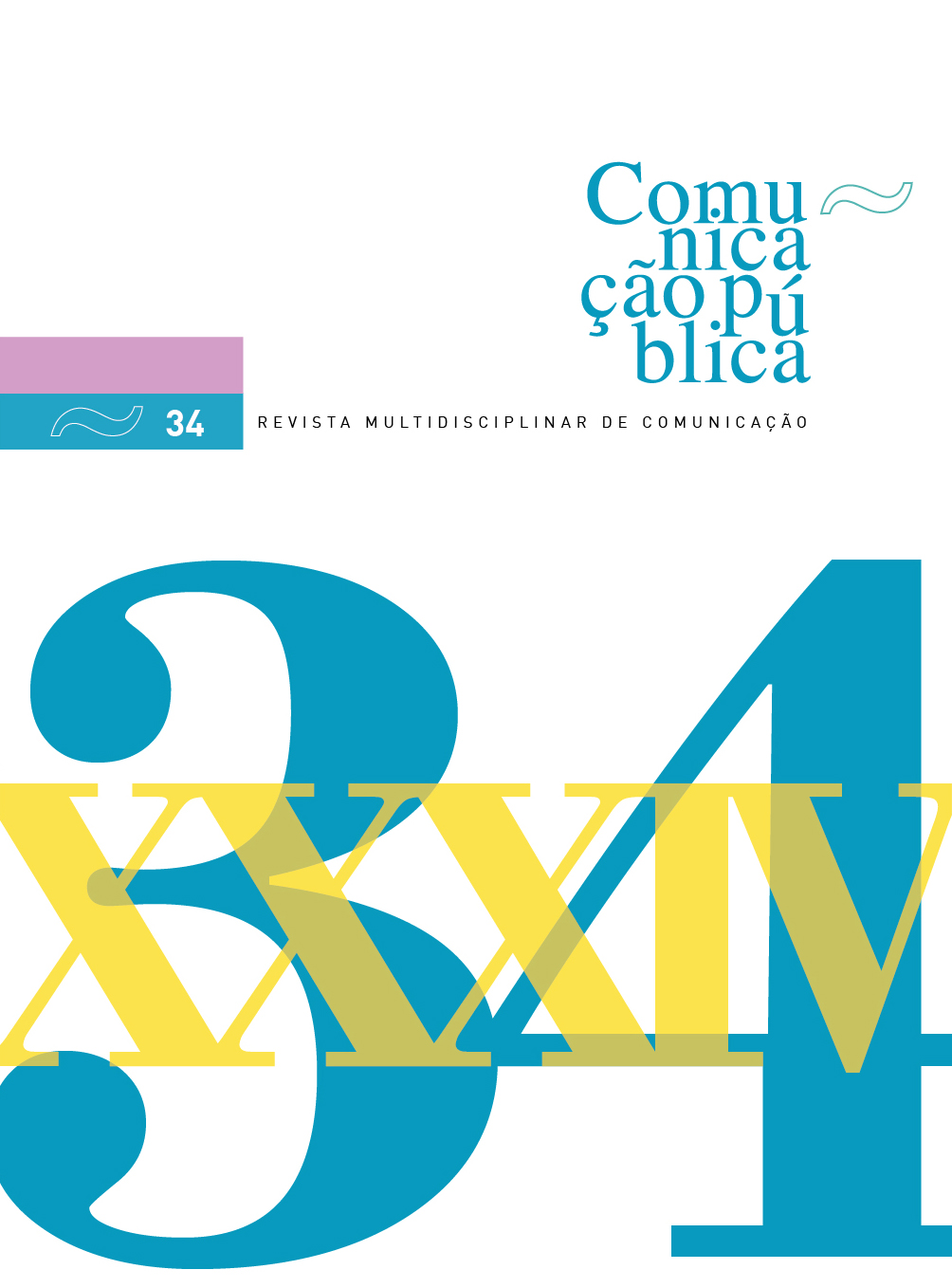
Número com dossiê temático
Vol. 18 N.º 34 (2023)DOSSIÊ TEMÁTICO
Estudos em Audiovisual e Multimédia
Audiovisual and Multimedia Studies
EDITORES
Catarina Duff Burnay, Faculdade de Ciências Humanas, Universidade Católica Portuguesa
Paulo Nuno Vicente, Faculdade de Ciências Sociais e Humanas, Universidade Nova de Lisboa
As potencialidades expressivas e comunicativas dos media digitais têm desafiado as assunções instaladas sobre o audiovisual e o multimédia como contextos e objetos de estudo. Multiplicam-se os ecrãs, hibridizam-se os aparatos de acesso a conteúdos, as tecnologias emergentes convertem-se em novas modalidades de mediação e ganham centralidade nos quotidianos, os textos fragmentam-se, os/as receptores/as adquirem um estatuto duplo e simultâneo de consumidor/a e de produtor/a. Através do trabalho de investigadores/as nacionais e internacionais, este dossiê temático explora dinâmicas contemporâneas dos processos de criação, de distribuição e de recepção audiovisual e multimédia em diferentes âmbitos, contribuindo para uma reflexão atualizada sobre os seus impactos nas práticas culturais e societais.
-
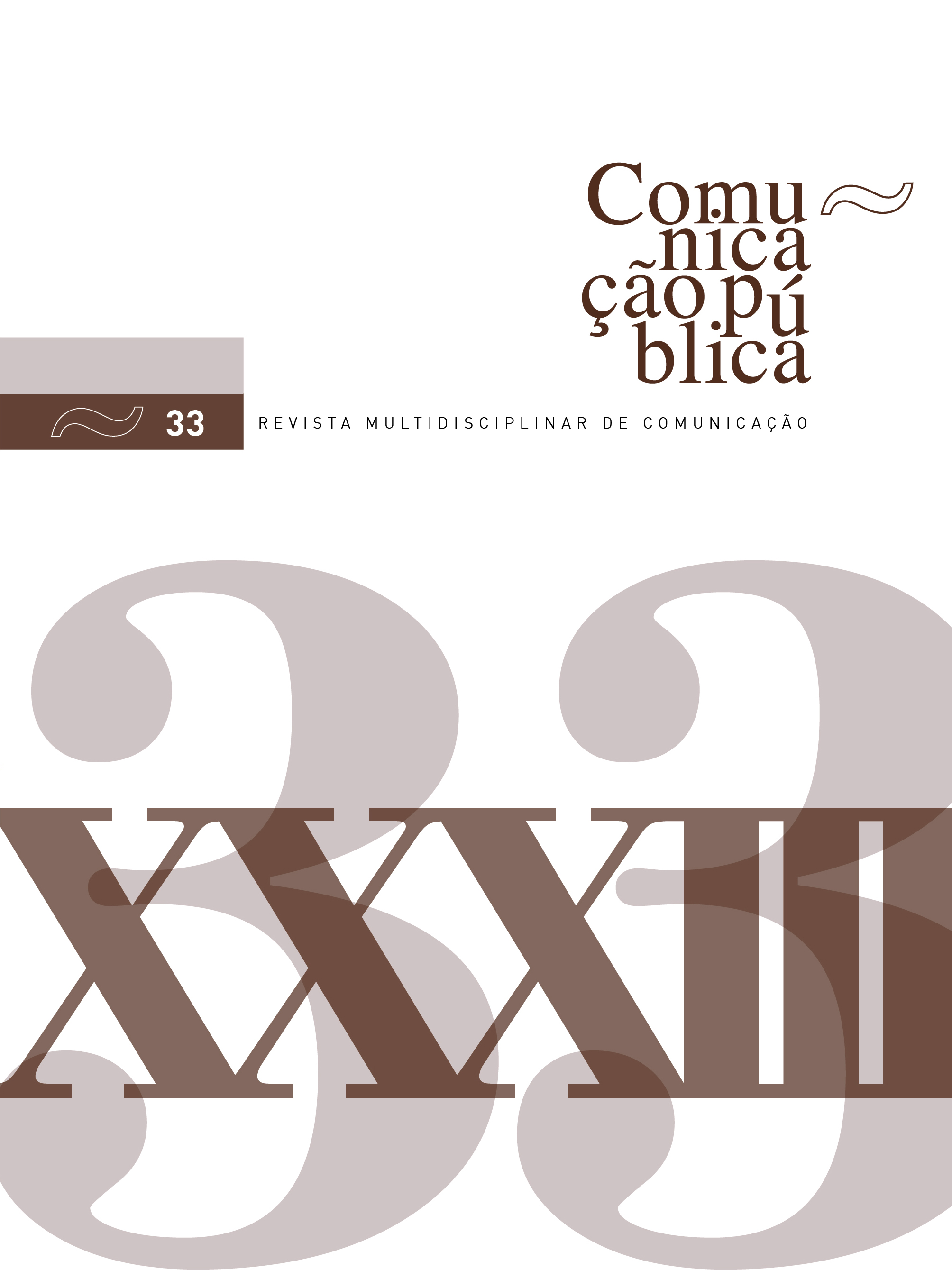
Número com dossiê temático
Vol. 17 N.º 33 (2022)DOSSIÊ TEMÁTICO
Literacia mediática: estratégias para fortalecer a cidadania e a democracia
Media literacy: strategies to intensify citizenship and democracy
EDITORES
Patrícia Silveira, Faculdade de Design, Tecnologia e Comunicação da Universidade Europeia/IADE-UE; Universidade do Minho/CECS
Ricardo Morais, Faculdade de Letras da Universidade do Porto; Universidade da Beira Interior/LabCom
O desenvolvimento tecnológico e a proliferação das ferramentas e conteúdos digitais têm-se constituído como elementos que desafiam as empresas mediáticas e os produtores de conteúdos, mas também os públicos, que, instigados por contextos crescentes de desinformação, colocam muitas vezes em causa os valores democráticos e a participação cívica consciente. Nos últimos anos tem sido ainda mais evidente a utilização daquelas plataformas para o crescimento de populismos e o reforço de governos autoritários. Neste contexto de ameaça à democracia liberal, à cidadania e à participação cívica, o dossiê temático “Literacia mediática: estratégias para fortalecer a cidadania e a democracia” visa explorar, a partir das investigações de um conjunto de autores, a importância e o papel da literacia mediática e digital enquanto elemento constitutivo e essencial para a formação de uma cidadania participativa, crítica, digna e justa, enquanto valor essencial na construção e manutenção de sociedades plurais e democráticas.
-
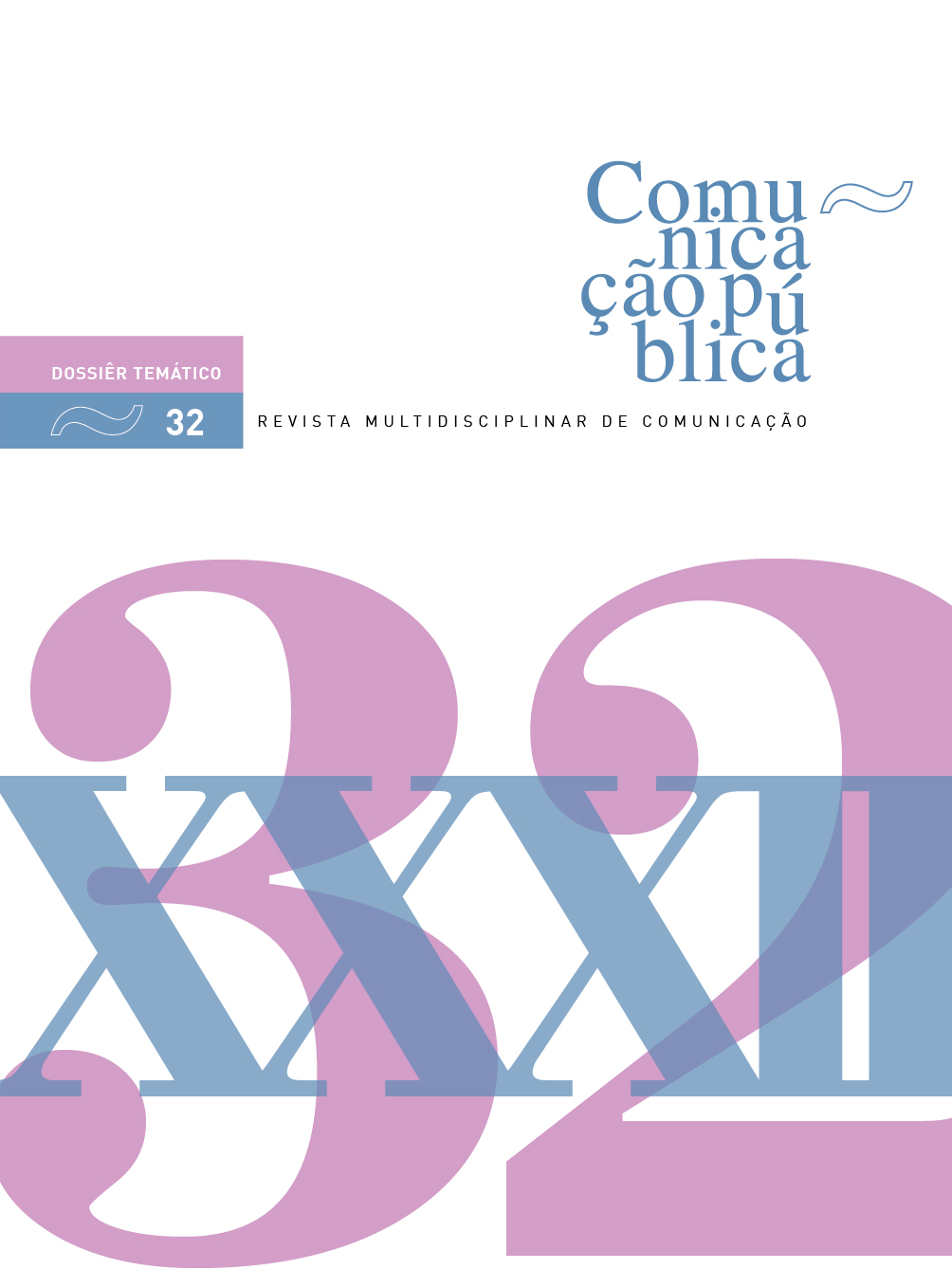
Número com dossiê temático
Vol. 17 N.º 32 (2022)DOSSIÊ TEMÁTICO
Publicidade: novos formatos, novos conteúdos
Advertising: new formats, new content
EDITORES
Jorge Veríssimo, Escola Superior de Comunicação Social, Instituto Politécnico de Lisboa (ESCS - IPL)
Sara Balonas, Instituto de Ciências Sociais da Universidade do Minho
No que concerne ao primeiro intento, os editores pretendem, acima de tudo, estimular o debate em torno da publicidade, refletindo sobre a sua capacidade de adaptação aos desafios societais e tecnológicos, sem esquecer as tendências que o discurso publicitário anuncia ou incorpora.
Quanto ao segundo, os editores do dossier “Publicidade: novos formatos, novos conteúdos” apresentam os vários contributos de investigadores que procuram espelhar a contemporaneidade através da publicidade, revelando que esta se continua a afirmar enquanto discurso e enquanto técnica no ecossistema comunicacional. -
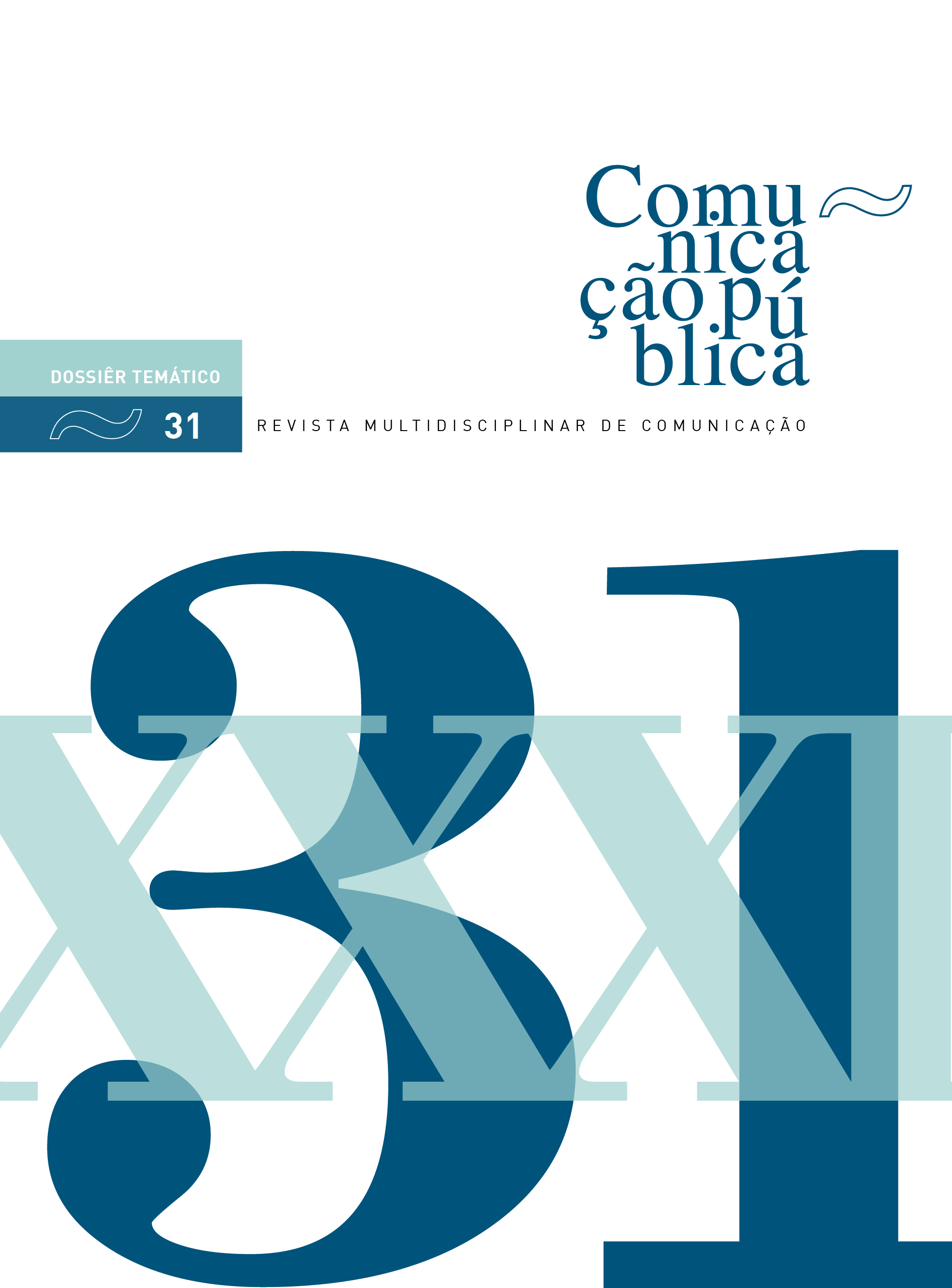
Número com dossiê temático
Vol. 16 N.º 31 (2021)DOSSIÊ TEMÁTICO
Os Novos Territórios do Podcast
The New Territories of the Podcast
EDITORES
Ana Isabel Reis, Faculdade de Letras da Universidade do Porto
Fábio Ribeiro, Universidade de Trás-os-Montes e Alto Douro
Nos últimos anos tem-se registado um aumento significativo no consumo de podcasts, numa tendência que parece já não ser exclusivamente internacional. Em Portugal, durante o confinamento provocado pela pandemia da COVID-19, seguiu-se essa tendência. Dirigido tanto para as grandes audiências, como para pequenos nichos hiperespecializados, o podcast tem vindo a ser utilizado não apenas pelos meios de comunicação, mas também nas mais diferentes áreas: da política às relações públicas, do ensino à comunicação organizacional, da cultura ao desporto. Este número da Revista Comunicação Pública, sob o tema “Os novos territórios do Podcast”, tem por objetivo explorar esse carácter multifacetado e transversal do podcast.
-
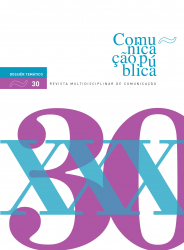
Número com dossiê temático
Vol. 16 N.º 30 (2021)DOSSIÊ TEMÁTICO
Publicidade em tempos de pandemia: novos desafios e abordagens
Advertising in times of the pandemic: new challenges and approaches
EDITORES
Elsa Simões, Universidade Fernando Pessoa
Sandra Tuna, Universidade Fernando Pessoa
A publicidade é, e tem sido desde sempre, um importante indicador de mudanças sociais, em todas as áreas. Mesmo quando confrontada com situações extremas, tais como a que vivemos presentemente, as sociedades ocidentais contemporâneas mantêm a necessidade de prosseguir com os seus processos, na medida em que as rodas da economia das quais dependemos têm de continuar a girar, independentemente dos percalços que ameaçam bloquear o sistema. A publicidade tem, portanto, de se adaptar de forma rápida e eficaz à alteração profunda de paradigma que a pandemia provocou: ao mesmo tempo que as novas mensagens publicitárias enfatizam a necessidade de manter vivo o processo de consumo, têm necessidade de acentuar visivelmente o facto de haver consonância total de interesses entre anunciante e consumidor.
-
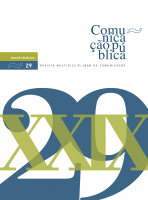
Número com dossiê temático
Vol. 15 N.º 29 (2020)DOSSIÊ TEMÁTICO
Comunicar a saúde: fundamentos e práticas para uma melhor saúde
Communicating health: fundamentals and practices for better health
EDITORES
Célia Belim, ISCSP-Universidade de Lisboa, CAPP Instituto Superior de Ciências Sociais e Políticas Universidade de Lisboa (ISCSP-ULisboa)
Cristina Vaz de Almeida, CAPP-ISCSP-Universidade de Lisboa; ISPA Instituto Superior de Ciências Sociais e Políticas Universidade de Lisboa (ISCSP-ULisboa)
Expressões como “saudável graças à comunicação” (Belim & Vaz de Almeida, 2018a), “abrir a porta da comunicação para melhores resultados” em saúde (Vaz de Almeida & Belim, 2019), a comunicação “como uma luz no caminho do paciente” (Vaz de Almeida & Belim, 2020) e as “competências de comunicação como a chave” para otimizar a literacia em saúde (Belim & Vaz de Almeida, 2018b) traduzem o valor da comunicação para a saúde.
-
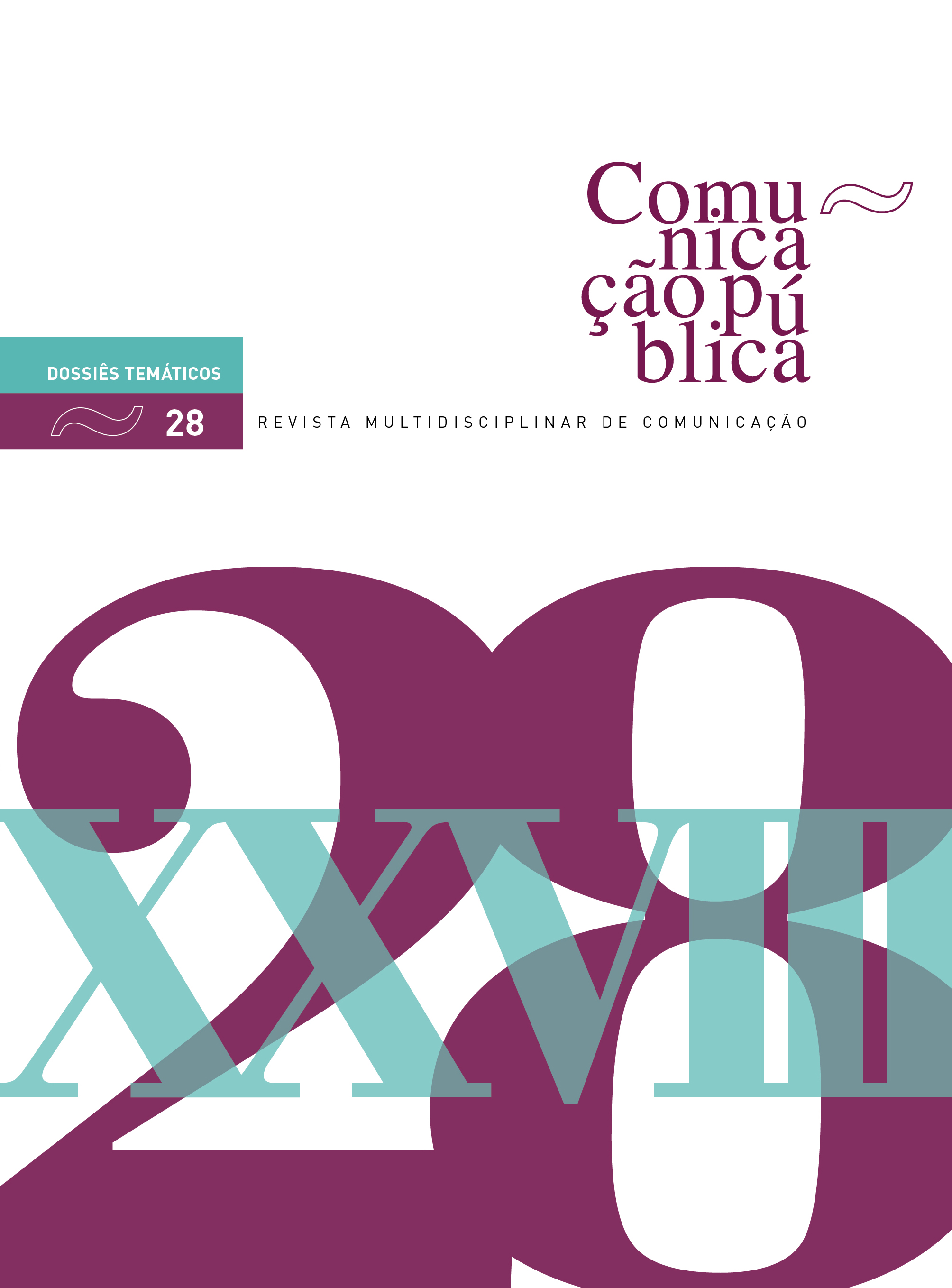
Número com dossiês temáticos
Vol. 15 N.º 28 (2020)DOSSIÊ TEMÁTICO
Notícias e públicos na era dos novos media
News and audiences in the age of new media
EDITORES
Patrícia Silveira, IADE- Faculdade de Design, Tecnologia e Comunicação, Universidade Europeia
Inês Amaral, Departamento de Filosofia, Comunicação e Informação, Faculdade de Letras da Universidade de Coimbra
As problemáticas inerentes às dinâmicas de produção, distribuição e consumo de informação de teor noticioso têm sido alvo, nos últimos anos, de inúmeros estudos académicos. Salienta-se, porém, a especial relevância, no presente, de haver uma maior produção científica em matérias que se dediquem a compreender e a analisar os novos panoramas mediáticos e informativos …
DOSSIÊ TEMÁTICO
A comunicação omnicanal em turismo
Omni-channel communication in tourism
EDITORES
Raquel Barbosa Ribeiro, Instituto Superior de Ciências Sociais e Políticas, Universidade de Lisboa
Filipa Fernandes, Instituto Superior de Ciências Sociais e Políticas, Universidade de Lisboa
Encontramo-nos na era dos serviços e a comunicação estratégica é tida como determinante para o seu sucesso (Lewis, 2019). Nas últimas décadas, o processo de digitalização da sociedade influenciou notavelmente a comunicação estratégica (Batra & Keller, 2016) …
-
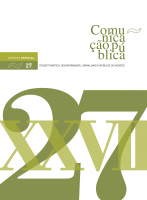
Número com dossiê temático
Vol. 14 N.º 27 (2019)DOSSIÊ TEMÁTICO
Desinformação, Jornalismo e Modelos de Negócio
Disinformation, Journalism and Business Models
EDITORES
Suzana Cavaco, CITCEM -Faculdade de Economia da Universidade do Porto
O cidadão, para atuar em democracia, precisa de ter acesso a informação relevante, verídica e plural. A responsabilidade social da imprensa – um conceito introduzido em 1947 pela Comissão Hutchins – assenta no direito fundamental a informar e a ser informado. O jornalista desempenha um papel socialmente reconhecido de construção da realidade. Trata-se de um “poder simbólico”: um poder “invisível”, “quase mágico”, “de fazer ver e fazer crer, de confirmar ou de transformar a visão do mundo e, deste modo, a ação sobre o mundo, portanto o mundo” (Bourdieu, 1989). Nos anos 90, Bourdieu (1997) criticava os jornalistas por deterem o monopólio de facto dos instrumentos de difusão da informação a grande escala, contra o qual se defrontavam os produtores culturais…
-
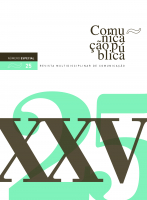
Número com dossiê temático
Vol. 13 N.º 25 (2018)DOSSIÊ TEMÁTICO
Comunicação Interna Estratégica
Strategic Internal Communication
EDITORES
Sandra Pereira, Escola Superior de Comunicação Social, Instituto Politécnico de Lisboa (ESCS - IPL); Centro de Investigação de Estudos de Sociologia (CIES) - Instituto Universitário de Lisboa
Muitos são os desafios que se colocam hoje na comunicação com os colaboradores das organizações. A forma como as organizações comunicam internamente está a ganhar novos contornos, que trazem a debate inúmeras matérias. A natureza cada vez mais global dos negócios, que altera os princípios e os modelos de trabalho e colaboração, as crescentes exigências dos clientes, investidores e reguladores, os novos contornos do panorama mediático e as dinâmicas impostas pelos meios digitais e sociais obrigam as empresas, sejam estas grandes corporações ou microprojetos empresariais inovadores, do setor público ou privado, a repensar as suas formas de informar e dialogar com os colaboradores…
-
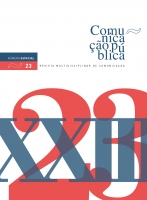
Número com dossiê temático
Vol. 12 N.º 23 (2017)DOSSIÊ TEMÁTICO
Fotografia e Propaganda no Estado Novo Português
Photography and Propaganda in the Portuguese Estado Novo
EDITOR
Filomena Serra, Instituto de História da Arte, IHA, Faculdade de Ciências Sociais e Humanas, FCSH, Universidade Nova de Lisboa
A publicação deste número especial temático composto por onze estudos inéditos - intitulado Fotografia e Propaganda no Estado Novo - é a primeira iniciativa editorial do Projecto Fotografia Impressa. Imagem e Propaganda em Portugal (1934-1974) e resulta da chamada de trabalhos ocorrida em Janeiro de 2017, através da revista Comunicação Pública, da Escola Superior de Comunicação Social (ESCS), com o apoio do Instituto de História da Arte da Faculdade de Ciências Sociais e Humanas da Universidade Nova de Lisboa.
-
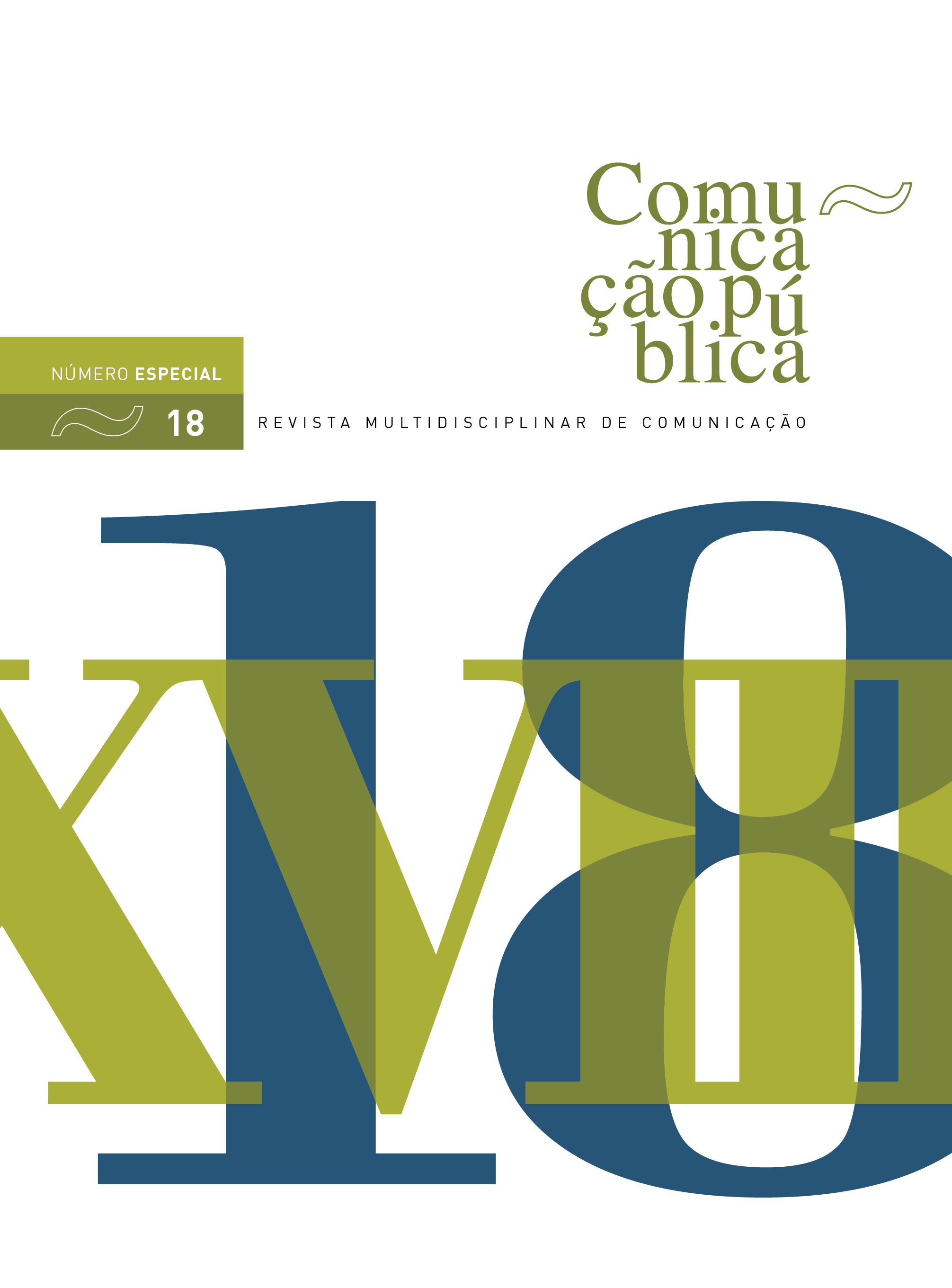
Número com dossiê temático
Vol. 10 N.º 18 (2015)DOSSIÊ TEMÁTICO
Comunicação política na web, sociedade civil e cidadania em questão
Political web communication, civil society and citizenship into question
EDITOR
Paula Espírito Santo, Centro de Administração e Políticas Públicas, Instituto Superior de Ciências Sociais e Políticas da Universidade de Lisboa
Participative democracy is, more than ever, a constant work-in-progress and an ever challenging dilemma both for citizens and the civil community and also for political elites and democratic governments. One of the core questions to address is on which side to be: on ‘their’ side, the side of the power elites, cooperating with them, or on the ‘other’ side, the side of the people and of civil society, growingly critical and suspicious about the status quo system and its elites. This special issue and the contributions therein is focus on three main interrelated areas of inquiry: political web communication, civil society and citizenship. Briefly, we seek, on the one hand, to get closer to the inner process of political interactivity in the web space, particularly by questioning how citizenship has been performed…

